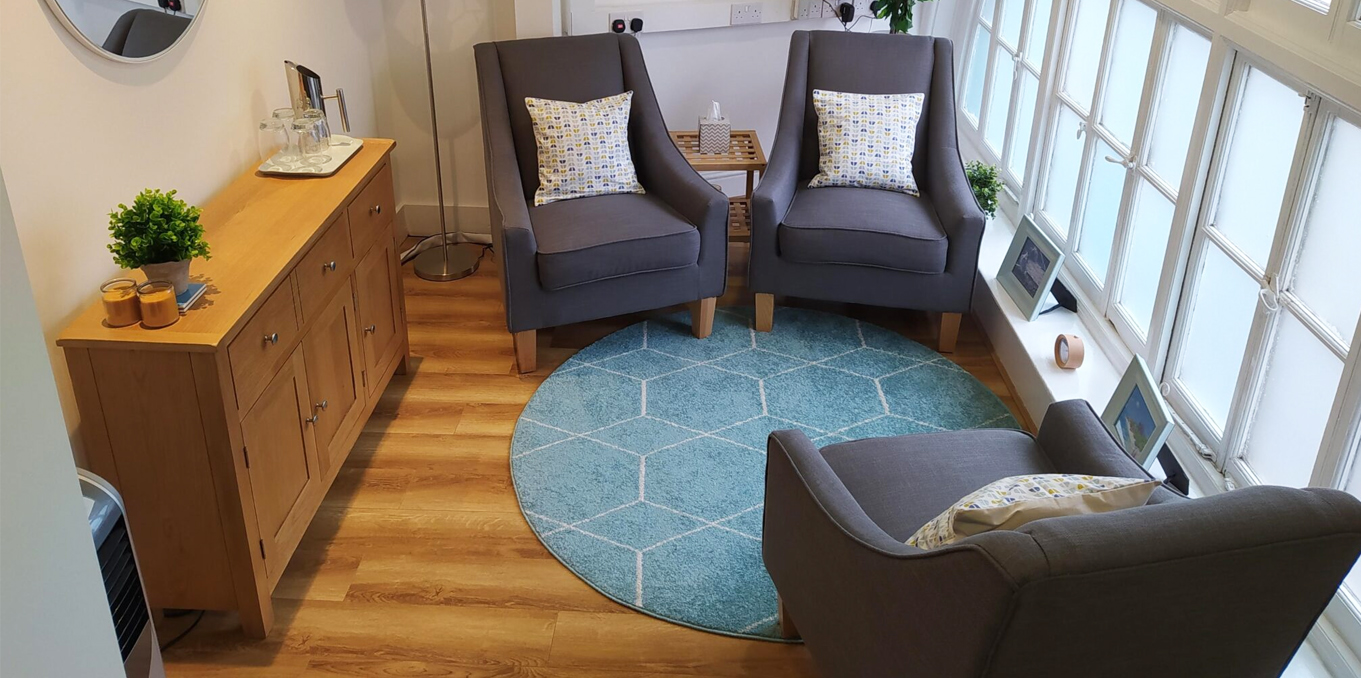Overcoming Pre-Therapy Jitters
Having successfully provided psychotherapy and counselling within the NHS, charitable services and now the private sector for the past 20 years, one of the things I have noticed, is the trepidation and nervousness that can occur in clients around getting started. Many of the clients I have worked with have come requesting anxiety counselling, stress counselling, counselling for depression, trauma counselling and workplace counselling, and these issues have meant that people can often come along feeling vulnerable and anxious, even having fears that therapy will make them feel worse.
There can often be a period of time for clients, between thinking about starting therapy, and actually starting it, whether the client is brand new to the process, or whether they have had sessions elsewhere at some point in the past. While this waiting period can be due to getting practical matters such as getting finances in order, or freeing up time to attend sessions, it can unfortunately be due to an unpleasant past experience of therapy. Clients may worry that they might appear weak if they reveal their emotions or worry that the therapist might tell someone else. Others struggle with issues around culture and diversity, where they feel they are betraying their families or communities by talking to someone ‘outside’. There can be all kinds of personal reasons contributing to pre-therapy jitters.
The good news is that here are some simple ways to overcome this.
Ask Questions
Many therapists offer some form of free consultation, either in terms of an initial call, or initial assessment. This is a great opportunity to ask lots of questions and to get a sense of whether you feel you ‘click’ with the Therapist, to get an idea of how they work, and to decide whether you feel heard by them. If you are new to the process and unsure of what to expect, part of your therapist’s role is to answer any questions and provide you with important information, to empower and enable you to make informed decisions for yourself about the therapy.
Tell your Therapist It is very normal to have pre-therapy jitters and often the therapist will pick this up. If you are feeling nervous or even fearful about getting started, tell your therapist. Remember, they are likely to be empathetic and they are there to help you, and to help you help yourself. They will want to create a space to help you to feel safe, understood and not judged.
Remember, your Therapist is on your team
Letting your therapist know that you are feeling nervous and why (if you know why), can be really helpful to the process, in starting to build a safe, trusting relationship. Your therapist gets a chance to find out a little about you, but also, you get the opportunity to see and feel how your therapist responds to you. Therapeutic relationship building means that you get a chance to understand the practical bits of what psychotherapy and counselling is all about, including, confidentiality, and how you are both going to work together.
Your Therapist might be nervous too
Remember your therapist is a human being first. While it might not necessarily show, sometimes the therapist might be a little nervous about meeting you for the first time too, and this is very normal for two people who haven’t met before. Your therapist is also likely to have had their own therapy, and will have personal experience of how it feels to go to a new therapist.
Remember, you can always change your mind If you decide to meet with your therapist, and your gut feeling tells you that you both don’t quite click, you can always change your mind. You are unlikely to get the most out of therapy, if you work with a therapist you feel doesn’t ‘get’ you. A good therapist will have no vested interest in ‘talking you into’ therapy or trying to make you stay, and will respect your decision making, whether you decide to stay or move on.
Recognise your Achievement
Starting therapy and taking the decision to explore issues with someone you don’t know and make change, takes courage. Remember to give yourself credit whether you decide to start sessions, or, whether you decide that now is not quite the right time, or the therapist isn’t quite right. Making self-care decisions around what’s best for you is an achievement.
If you or someone you know is thinking about starting therapy, but feeling nervous about getting started, I’d be happy to talk this through with you, and answer any questions you might have. Please either call me, Belinda Wilson (Psychotherapist & Director) on 07714 028837, or alternately click the ‘book appointment’ button on the home page, to book a free 30-minute consultation call.

